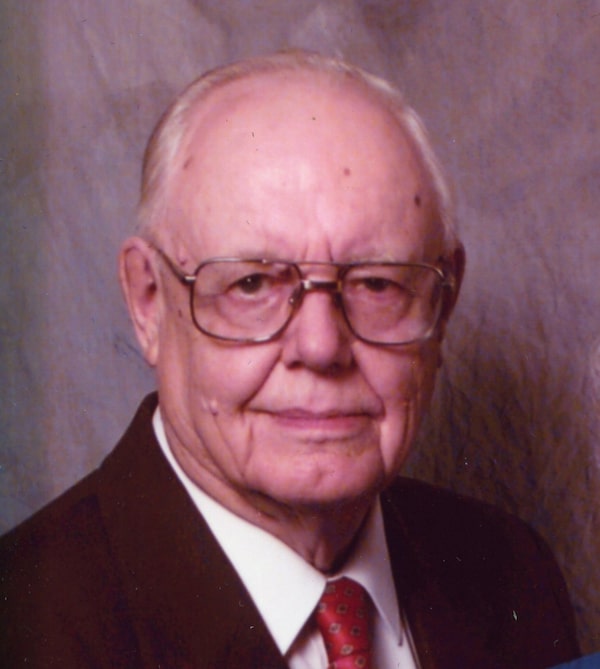
Allen Ronaghan.Courtesy of family
Allen Ronaghan: Father. Teacher. Historian. Honorary Chief. Born March 10, 1923, in Islay, Alta.; died Jan. 21, 2020, in Edmonton, from complications after a fall; aged 96.
Allen Ronaghan devoted his life to his family and at least 50 years to understanding the history of Western Canada. He did not achieve the kind of notice or receive the honours he should have during his life.
Allen and I first met as students in Saskatoon. He and his wife, Shirley, had just moved in next door and he came over to help my wife and me shell peas on our back step. That was the start of a long friendship, involving many pots of tea and long discussions over games of cribbage.
Allen had been a teacher and principal in the small towns of east-central Alberta, but his true passion was history – Western Canadian history to be exact.
Allen and Shirley raised three daughters – May, Beth and Stella – to be independent young women, teaching them to drive, change a tire and do simple vehicle repairs. He ensured that they got a good education and were exposed to culture, once making the trip from Irma, Alta., to Edmonton for a performance by the Bolshoi Ballet, a drive of over two hours each way.
Once his three daughters had completed school, Allen, now 50, set about becoming a professional historian. It was a long road, with an honours BA and an MA from the University of Saskatchewan, followed by a PhD from the University of Manitoba. He completed his doctorate in 1988 at age 65.
Perhaps not surprisingly, there were no positions available for a newly minted 65-year-old historian. But that didn’t stop Allen. Allen believed that history was best understood by tying records from the period with findings on the ground. He put on many kilometres and wore out several Toyotas with all his travels.
Allen followed Henry Kelsey’s journals locating notable landmarks the HBC fur trader and explorer mentioned in his travels, thereby demonstrating that Kelsey, the first white man to see the Prairies, came out of the northern bush hundreds of kilometres east of where that was thought to have occurred.
He also shored up the facts of a disputed 1851 battle between Sioux warriors and Red River Métis. Though some have questioned whether the two-day event even took place, the rifle pits located by Allen speak volumes.
And by following the journals of a defrocked priest who travelled with the Blackfoot in the 1870s, he demonstrated that the Blackfoot tribe (the Siksika) had a much larger territory in the past. In recognition of his work, elders gave him a tribal blanket and a beaded knife sheath and, in 2018, the Siksika First Nation gave him the honorary title Eagle Chief.
Allen accomplished a lot for a historian who never held a paid position. He published numerous papers and wrote, translated or edited several books, including (in the 1950s) a book on the need for bilingualism in Canada. He was also made an Honorary Lieutenant-Colonel of the 9th Battalion Rifles (Voltigeurs) Commemorative 1885 Association for bringing a better understanding to the events of the 1885 Riel Rebellion.
Allen was a voracious reader, subscribing to four newspapers (one in French) at the time of his death. He helped out in his community, and for years worked on the upkeep of a pioneer cemetery.
For many years he and Shirley had weekly Wednesday dinners with three of their six grown grandchildren. That was Allen’s chance to share the history of the West and debate the finer points of the current news or a good book.
VG Lappi is a long-time friend.
To submit a Lives Lived: lives@globeandmail.com
Lives Lived celebrates the everyday, extraordinary, unheralded lives of Canadians who have recently passed. To learn how to share the story of a family member or friend, go to tgam.ca/livesguide